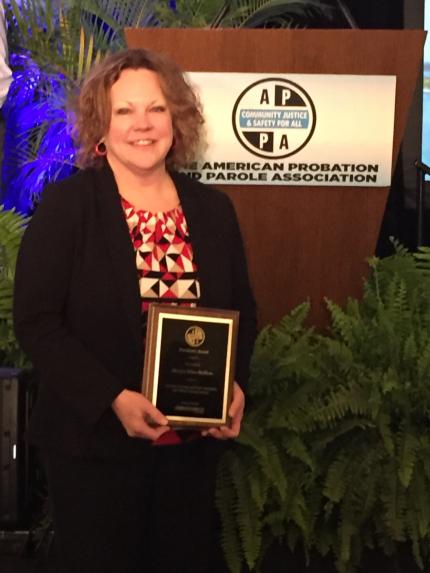Inclusive Communities Training Receives President’s Award from American Probation and Parole Association
The Creating Inclusive Communities Training Initiative, developed by Court and Probation personnel has received national recognition by the American Probation and Parole Association. The program, developed in 2018 with the assistance of the Inclusive Communities Organization of Omaha, received the APPA’s 2019 President’s Award.
Monica Miles-Steffens, Director of Placement for Juvenile Services, accepted the award on March 11, 2019 during APPA’s winter training institute in Miami, Florida. The training initiative for the Judicial Branch focuses on baseline training for all employees, enhancing new probation officer training curriculum and developing ongoing training capacity through trainer and communities of practice development. During her acceptance speech, Miles-Steffens highlighted the Inclusive Communities initiative by stating “One of the biggest challenges that continues to plague our criminal and juvenile justice systems in this nation is the overrepresentation of communities of color. We can help repair relationships, restore communities and create a system that is just and fair for all. Our work within the Nebraska Judicial Branch through our Inclusive Communities Initiative has only just begun, but it has been exciting to see thinking challenged, attitudes changed and relationships built.”
The American Probation and Parole Association established the President's Award to recognize exemplary community corrections programs which serve to advance the knowledge, effectiveness and the integrity of the system. APPA acknowledges the growing responsibilities of the profession in meeting ever present demands by celebrating the successes of their constituents. Successes are the product of collaboration, team work and organizational spirit. To this end, this award recognizes visionary organizations that have exemplified the management and innovations necessary to lead community corrections into the next decade.

